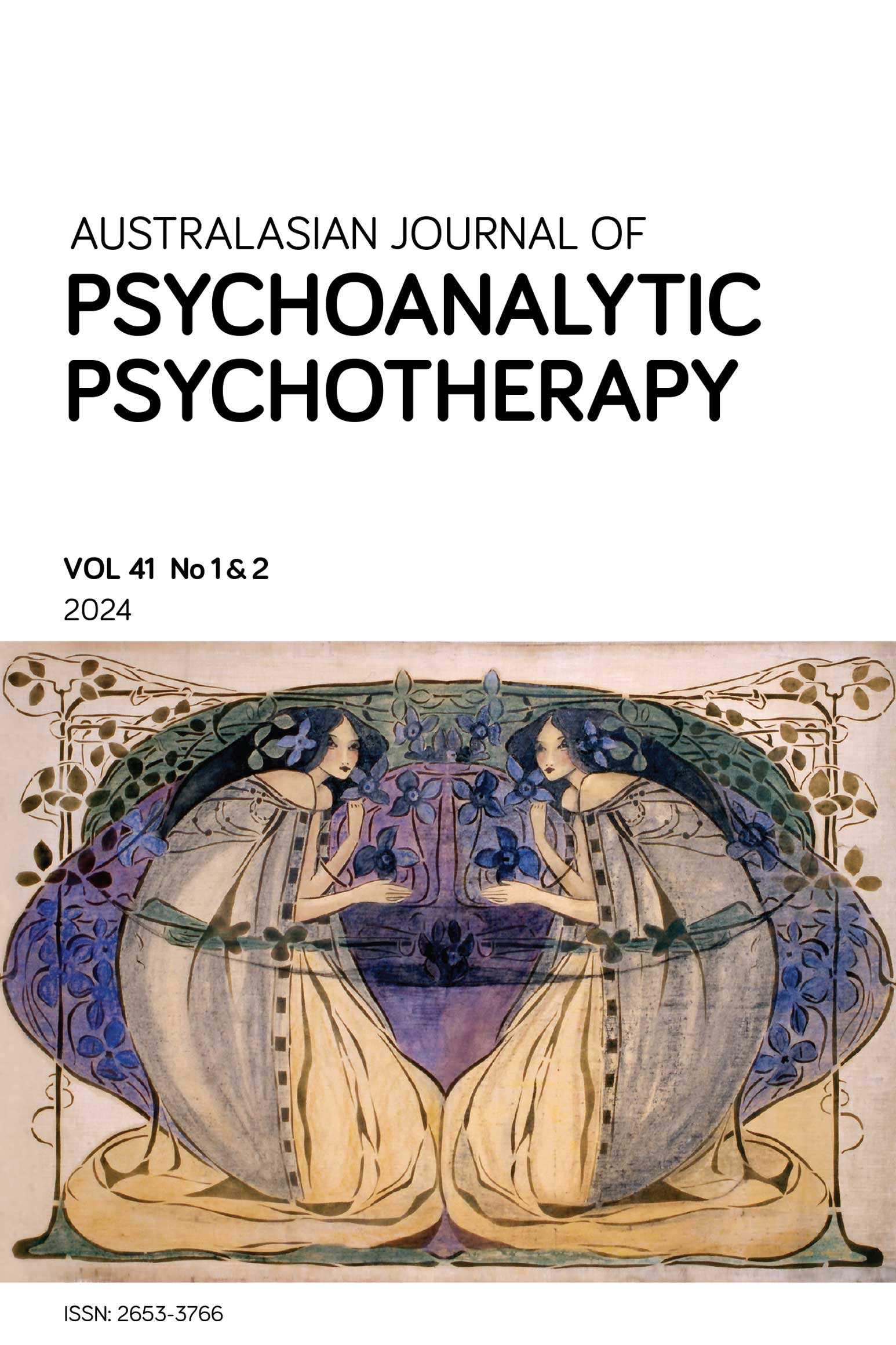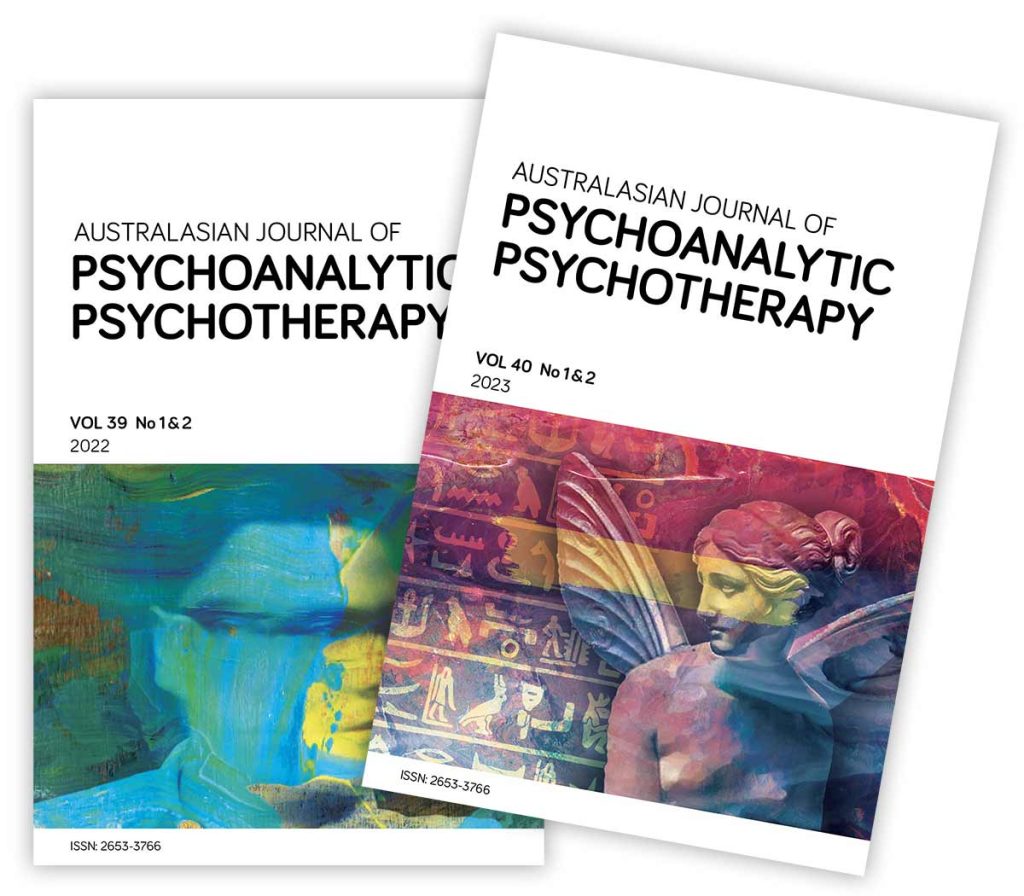Australasian Journal of Psychoanalytic Psychotherapy
Scope
Australia and New Zealand, from which the constituent members of the PPAA are drawn, are built on histories of settler colonialism. We recognize and pay homage to First Nations people, their land upon which we stand, and their elders past present and emerging. We recognize that First Nations culture is integral to developing Australian and New Zealand culture and, more broadly the continuing creation of psychoanalysis.
We welcome submissions from authors from the across the spectrum and organisations focussing on psychoanalytic thinking, practice, and research. Australian, New Zealand, and International contributions are all welcome. Click here for author guidelines.
Papers about Dadirri and about the two-way relationship between First nations and Settler people, are welcome – whether these be reflective, theoretical, clinical, or research based.
Our location in the Southern Hemisphere, on the Western Pacific Rim enables the development of a particular perspective and voice. It is derived in part from the Western tradition and is influenced by Australasia’s position as members of a Settler and First Nations Society. Australasia is part of a neighbourhood with South East Asia, India, China and Japan. We encourage the development and creation of psychoanalysis from these spaces.
Work on psychoanalytic theory development and innovation, is welcome. We will accept reflective and research papers with a clinical focus. We are interested in developing ideas and theoretical work about the unconscious. Papers on infant, child, couple, group, and institutional and socio- analysis, are welcome. We also seek work-in-progress and research reports. Submissions from clinicians at an early stage of their career are very welcome.
Papers offering a psychoanalytic perspective on literature and the arts, as well as historical, cultural and political issues, are all encouraged.
We recognise that psychoanalytic psychotherapy is influenced by a number of bodies of thought and invite contributions discussing the intersection of psychoanalysis with philosophy, geography, politics, literature and post colonialism to name a few. Papers drawn from the field of eco psychotherapy are welcome.
At this stage of the twenty-first century humanity is grappling with major social, political and ecological changes. Papers that provide a psychoanalytic perspective on climate change, overpopulation, international relations, displacement and trauma, refugee issues, technological development and Covid-19 are welcome.
Inquiries should be made to the editor, Yvette Willoughby ajpp@theppaa.com

ISSN 2653-3766 (Online)
Published by PPAA / AJPP
18 Erin St, Richmond VIC 3121
www.theppaa.com
AJPP interview with Elena Molinari
MEMBER OF:
– Italian Psychotherapy Association
– International Psychotherapy Association
AUTHOR OF:
Binocular Vision – An Enquiry into Psychoanalytic Techniques and Field Theory
PERSONAL
PERSONAL
Subscription
$55
PER YEAR
- Online access
- Volume 39 1&2, 2022
- Volume 40 1&2, 2023
- All future volumes with an ongoing annual subscription
PPAA Members: As part of your PPAA membership you receive access to the online version of the AJPP. Please click here to login and access your journals online. To renew your PPAA membership please contact your local Membership Association.
ORDER
Print Copies
$60
PER VOLUME
- Printed journal
- Postage included
PPAA Members: When ordering print copies, remember to add your discount code.

INSTITUTIONS
INSITUTION
Subscription
$101
PER YEAR
- Online access
- Volume 39 1&2, 2022
- Volume 40 1&2, 2023
- All future volumes with an ongoing annual subscription
PPAA Members: As part of your PPAA membership you receive access to the online version of the AJPP. Please click here to login and access your journals online. To renew your PPAA membership please contact your local Membership Association.
INSTITUTION
Subscription &Print Copies
FROM
$113
PER YEAR
- Online access to:
- Volumes 39, 40 and all future volumes with an ongoing annual subscription
- Print copies of:
- Volumes 39 & 40
PPAA Members: When ordering print copies, remember to add your discount code.
Editorial Committee
- Yvette Willoughby (Editorial Chair), CPPAA
- Christine Brett-Vickers (Former Editor in Chief), VAPP
- Malika Verma (Book Reviews), VAPP
- Dorothea Van Hees, QPPA
- Heath Townsend, APPWA
- Paul Foulkes, VAPP
- Kate Stewart, NSWIPP
- Jennifer Jackson, CPPAA, APPWA
- Yvette Willoughby (Editorial Chair), CPPAA
- Christine Brett-Vickers (Former Editor in Chief), VAPP
- Malika Verma (Book Reviews), VAPP
- Dorothea Van Hees, QPPA
- Heath Townsend, APPWA
- Paul Foulkes, VAPP
- Kate Stewart, NSWIPP
- Jennifer Jackson, CPPAA, APPWA
- Yvette Willoughby(Editorial Chair), CPPAA
- Christine Brett-Vickers(Former Editor in Chief), VAPP
- Malika Verma (Book Reviews), VAPP
- Dorothea Van Hees, QPPA
- Heath Townsend, APPWA
- Paul Foulkes, VAPP
- Kate Stewart, NSWIPP
- Jennifer Jackson, CPPAA, APPWA
Author Guidelines
For writers wishing to contribute to Australasian Journal of Psychoanalytic Psychotherapy (AJPP)


